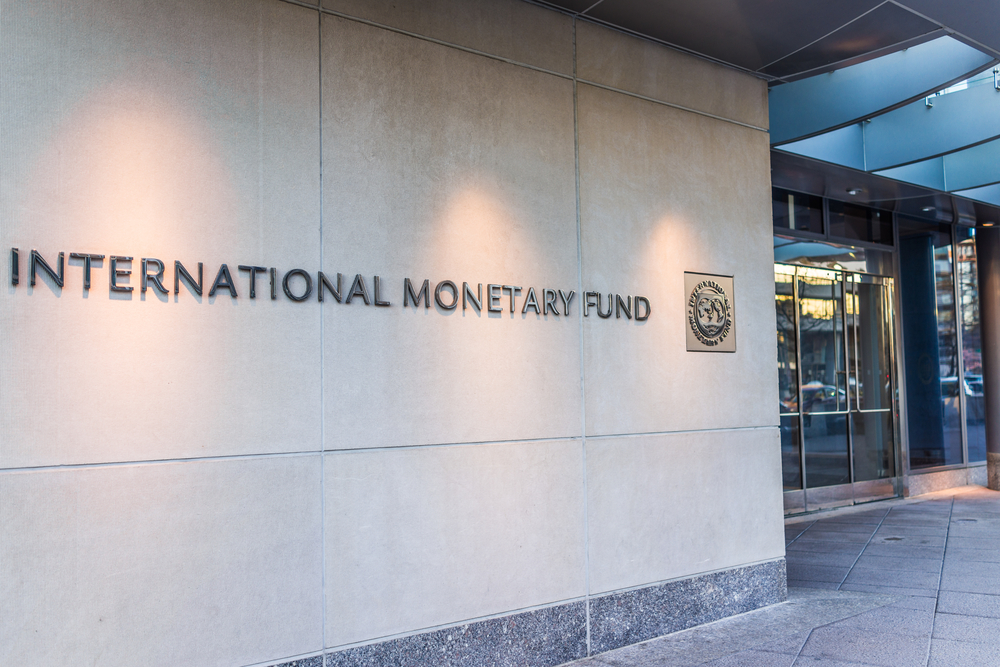Digital currencies might not be considered ‘real money’ yet, but it is hard to ignore the fact that blockchain may be useful in many regards.
The International Monetary Fund published a report on cryptocurrencies. Within the report titled ‘Back-to-Basics’, the Finance & Development experts explain some regular economic terms and concepts that readers encounter on a daily basis. The topic of cryptocurrency has become the first to be discussed by the Fund’s experts after a long hiatus.
SponsoredIMF, Not A Believer
In the report, the Fund attempted to provide a basic description of what cryptocurrencies are and how they function. However, it is hard to stay unbiased when it comes to the thorny concept of virtual money.
Even though we are nowhere near what could be considered mass adoption yet, digital assets are subjectively gaining in popularity. Many traditional financial institutions and tech companies are currently experimenting with blockchain technology and looking for ways to get engaged in the industry.
Sponsored SponsoredHowever, the International Monetary Fund officials are not on the same page in regards to the general excitement about this new budding concept of money. According to IMF economist Antoine Bouveret and assistant director Vikram Haksar, virtual coins do not fulfill basic functions of money, such as being a store of value, means of exchange, and unit of account.
The experts emphasize several key issues that will not let virtual money replace traditional currencies any time soon.

Key Cryptocurrency Issues — IMF Version
- Price fluctuations: Being too volatile, cryptocurrencies are useless as a store of value, or unit of account, according to the Fund’s experts.
- Limited acceptance: Merchants are slow to adopt cryptocurrencies as a means of payment due to a combination of tax issues and legal considerations. Users find it hard to spend their coins for everyday needs, so virtual monies are a failure as a medium of exchange.
- High cost of producing: Unlike fiat money, cryptocurrency production can be a costly affair. Many require quite a high level of energy to power the computers that confirm transactions and keep the whole system humming.
- Trust issues: A decentralized system is supposed to be trustless by nature. It does not require a trusted central agent to guarantee a transaction to back the asset. It means that there is no one to clean the mess if something goes wrong, and the acceptance of an asset is based solely on users’ trust.
- Pseudo-anonymity: This feature makes cryptocurrencies an attractive vehicle for money laundering and financing illegal activities.
Blockchain Has a Chance
SponsoredAt the same time, the IFM admits the benefits associated with distributed ledger technologies. For example, they are unmatched for storing important financial records, medical histories, or land deeds. Transactions are irreversible and transparent and provide a reliable source of up-to-date information that significantly reduces red tape in many spheres of business and governance.
[bctt tweet=”‘Distributed ledger technology could reduce the cost of international transfers, including remittances, and foster financial inclusion’ — IMF” username=”beincrypto”]
The head of the International Monetary Fund Christine Lagarde voiced a similar position at a FinTech conference in Singapore in November 2018. She emphasized that digital money offers a great promise for remote and marginalized regions with a low bank presence and allows integrating the unbanked population into the global economy.

Do you support the IMF’s view that digital money won’t be able to replace fiat currencies? What can be done to eliminate the barriers for cryptocurrencies adoption? Let us know your thoughts in the comments below!

